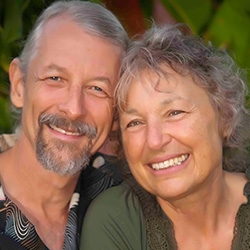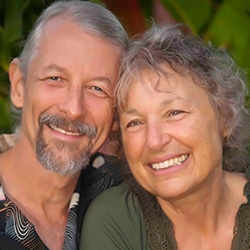

Search Results: work
-
Listen to Jim and Jori Manske share their understanding of discernment to gain clarity, insight, and wisdom for making life-serving distinctions and choices.
-
Delving into the impact of societal structures and parenting approaches on individuals.
-
Trainer Tip: Sometimes the expression of our needs can sound like demands or criticism. This can make it harder for people to want to contribute to us. Today, pay attention to how you express your needs. Find ways to release the emotional charge.
-
Pay attention to when you're motivated by guilt, duty, obligation, shame, and worry. How do you feel? Does it bring up resentment, rebellion, submission, reactivity or resistance? When you're motivated by joy notice how that feels, and how others respond. Read on for a related story.
-
Jim and Jori Manske explore the considerations of expressing ourselves honestly, considerations that lead to more fully conscious and nonviolent connections.
-
-
This self-assessment matrix is a concrete step toward naming and clarifying many skills that you may find valuable in your life. We suggest you periodically assess your skills to track your progress.
-
Join Miki as she covers a lot of territory, defining leadership, helping us lead when we're not in the leadership chair, showing us how to have power in every moment and engage our fear instead of let it run us. Get some powerful leadership tools you can put to use today.
-
Are you finding yourself grappling with the NVC model despite your familiarity or practice? Do you often feel stuck or find it challenging to make it feel natural or authentic in your interactions?
Let CNVC Certified Trainer, Dian Killian, guide you towards embodying the essence of NVC—a mindset of connection and collaborative engagement. Through her expertise, you'll discover invaluable insights tailored to make your NVC practice truly your own. From uncovering intuitive methods to discern feelings and needs, to seamlessly integrating NVC principles into your everyday speech, Dian empowers you with insider tips for authentic connection.
-
A chosen, interdependent world… In most cases, that's sure not the world we live in today, is it. But it could be the world we live in tomorrow. And you can choose to be part of bringing that better world to life – to be part of a gradual, joyful transformation – simply by using the dynamic, living power of Dialogue.
-
Judgment is an attempt to protect from hopelessness or insecurity, at high cost. Instead, check in with fear, grief, or hurt. Then wonder what needs are at stake for everyone. This makes space for grief instead of anger, for negotiation rather than control, and for "calling in" rather than excluding. Wonder: “For whom would this be life-serving or not?”, “What strategies would care for all needs?” or, “What can I contribute now?”
-
Feelings and Needs form the cornerstone of Nonviolent Communication (NVC), offering a profound framework for cultivating empathy, compassion, and authenticity in our interactions. This comprehensive 9-page Feelings and Needs Reference Guide is designed to support you in integrating these vital concepts into your daily life.
-
Feelings and Needs form the cornerstone of Nonviolent Communication (NVC), offering a profound framework for cultivating empathy, compassion, and authenticity in our interactions. This comprehensive 9-page Feelings and Needs Reference Guide is designed to support you in integrating these vital concepts into your daily life.
-
In listening to what our emotions tell us, and embracing what we do not know, we begin the path of courage. Even though our culture tells us not to, revealing our imperfections is where we can deeply connect. Living our lives more courageously honest, can shift us towards inspiring one another. Read on for how some people experienced this in coming together to transform one woman's heroine addiction.
-
When avoidance coping or positive thinking sidesteps challenges, internal and external injustice and unrest also rises as we sidestep our values and integrity. It leaves us in sadness and distress. What's unacknowledged impacts ourselves and others undesirably. To live nonviolently we need to be in touch with what's real. With resonance we can more likely be with what's true, and trust our resilience and inner alignment.
-
Trainer Tip: If you make a specific and doable request as soon as you notice your needs, you'll have a better possibility of getting them met. It's also more likely your request will support the other person to contribute to your life. Make at least one specific, doable request of someone today as soon as you notice your needs.
-
Raj Gil offers tools and dialogue to help you respond to anger with awareness & care in the moment.
-
Sometimes I hear people say things like, “I didn’t do Compassionate Communication this week.” Or “I tried Compassionate Communication when I was arguing with my wife last week.” Compassionate Communication is not a thing to do, or to pull out of our bag of tricks once in a while. Compassionate Communication is a consciousness of valuing everyone’s needs and of valuing connection more than being right, winning or protecting ourselves. It is a way of living.
-
-
Ask the Trainer: Exploring how unconscious motivations influence the needs we identify and express.

Quick Links
Subscription Preferences
Stay In Touch!
Looking for ways to keep up with NVC Academy news, get special offers, free resources, or words of inspiration? Here are five ways to stay engaged:

















